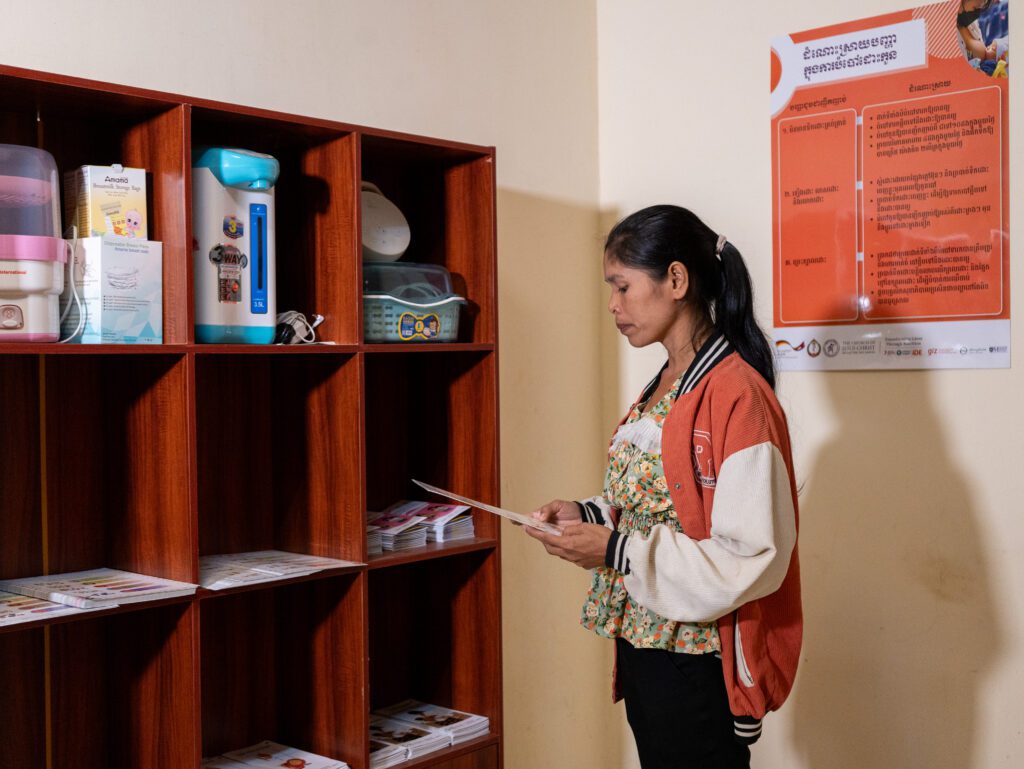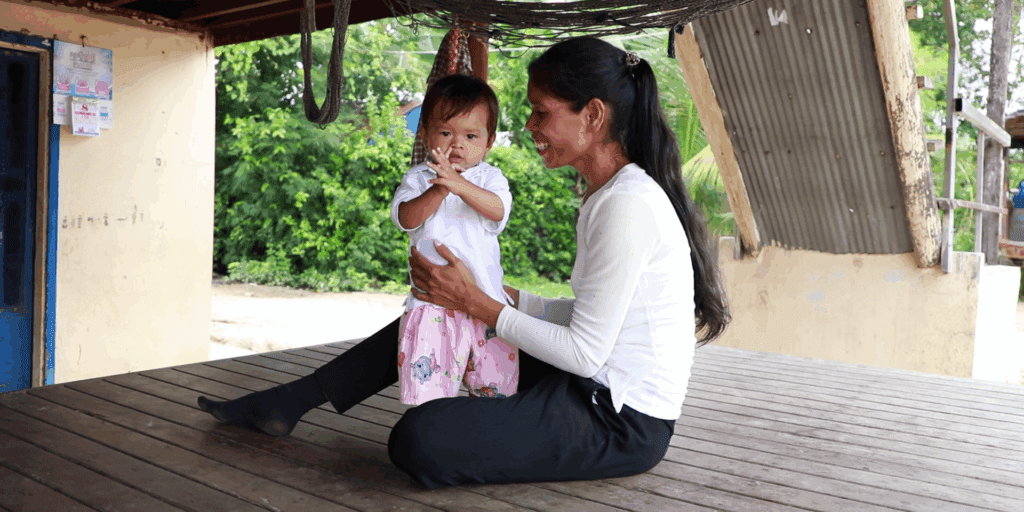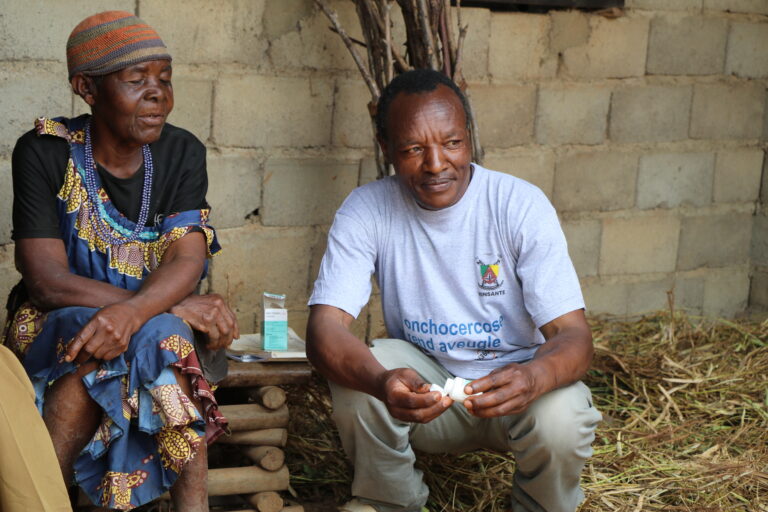Supporting Working Mothers to Continue Breastfeeding in Cambodia
Moul Saren was pleasantly surprised when she returned to work after maternity leave for her third child. The factory where she works as a quality control inspector, Copius, in Cambodia’s Takeo Province, had equipped a lactation room to support breastfeeding mothers.
The facility, established in partnership between Copius and Helen Keller Intl, funded by The Church of Jesus Christ of Latter-day Saints, provided moms like Saren with equipment and a place to pump and store their breast milk. Family members could even bring the child to the room so that mothers could breastfeed while they were at work.
Helen Keller also offered education sessions for new and aspiring moms about the importance of breastfeeding and how to properly pump breastmilk for later feedings. Saren says she learned that “breastfeeding helps keep the baby healthy, promotes proper growth, [and] reduces the likelihood of illness.”
Noun Yit, Human Resources Officer at Copious, and the mom of a four-year-old, says that due to the availability of the lactation room, more women who work at the factory are now breastfeeding their babies.
“With a fridge like this, they can pump and store the milk here, and in the evening, they can give it to their baby,” she says.
Exclusive Breastfeeding Supports Good Health
UNICEF estimates that improving breastfeeding rates around the world could save the lives of more than 820,000 children under the age of five every year.
Breastfeeding, initiated within the first hour of birth, provided exclusively for six months, and continued up to two years or beyond, is one of the key measures for promoting child wellbeing, according to the World Health Organization. It improves child survival, protects against life-threatening and chronic illnesses, and promotes healthy growth and early child development.
However, in Cambodia, the prevalence of exclusive breastfeeding for the first six months of life has been steadily decreasing over the past decade, falling from 65% in 2014 to 50% in 2021.

Cambodia has a provision for three months of maternity leave, which helps support early breastfeeding. However, after this, the rate of exclusive breastfeeding nosedives as most women find it challenging to continue once they return to work. Helen Keller has been working with employers, including garment factories like Copius, and government institutions to increase support for breastfeeding in the workplace.
Over the last three years, Helen Keller has partnered with 34 factories, with support from the German government and the Church, to educate employers on the benefits of breastfeeding, help set up and equip lactation rooms, and provide training and education for female workers. So far, these efforts have benefited more than 40,800 women working in those factories and their families.
Helen Keller also supports women to breastfeed from the time they give birth by training medical staff in hospitals’ maternity wards to provide counseling to new mothers. In addition, we promote awareness of breastfeeding’s benefits through direct engagement with local communities and social media campaigns.
Improving Nutrition, Saving Money, and Increasing Productivity
In addition to supporting improved health and nutrition for babies, women have also noted other advantages to continued exclusive breastfeeding, including financial savings.
“There wasn’t a breastfeeding room when I had my two other children, so it cost a lot of money to feed them with [formula] milk, and I could only breastfeed them at night,” Saren says. “Now, we don’t have to spend as much because I can pump breast milk for her.”
And moms and families aren’t the only ones benefiting from the lactation rooms. The factories have also reported increases in employee engagement and satisfaction at work. Yit notes that the lactation room has improved the motivation and retention of women working at the factory.
There wasn’t a breastfeeding room when I had my two other children, so it cost a lot of money to feed them with [formula] milk, and I could only breastfeed them at night. Now, we don’t have to spend as much because I can pump breast milk for her.
Moul Saren
“More women want to work here,” she says. “They said the factory was good, and they were happy. When women started working at this factory, they wanted to work here forever.”
While many employers worry supporting breastfeeding will only cost their business money, Helen Keller has helped employers understand that it can be beneficial for everyone. After our trainings, employers have shown an increased awareness of the importance of breastfeeding and their willingness to support women.
Emphasizing the long-term benefits, Saren hopes that other women at the factory will use the lactation room so they and their babies will benefit from continued breastfeeding.
“I would advise them to follow my example in order to save money and keep their babies healthy,” she says.




